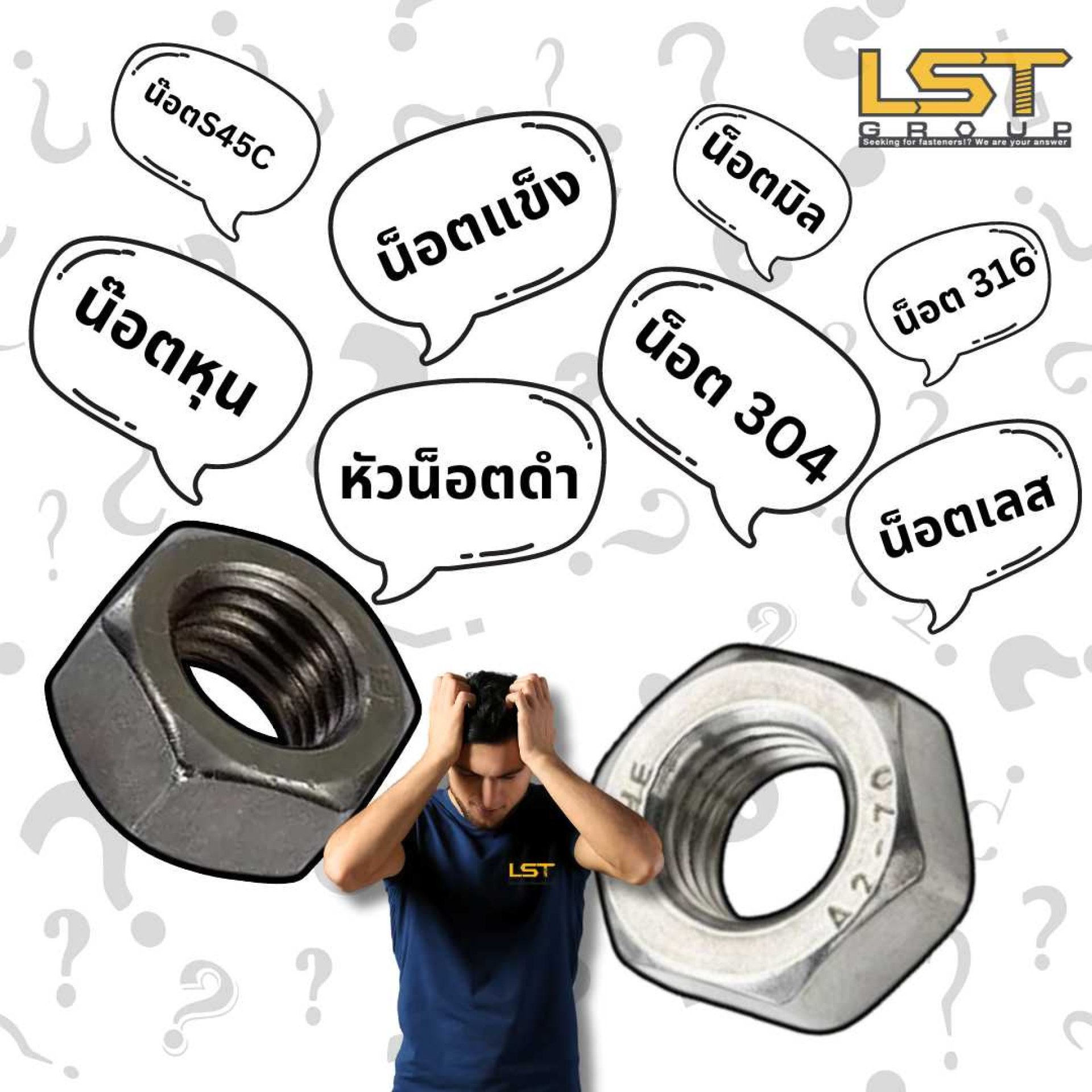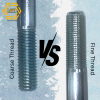What standards and hardness grades are there for Hex Nut that are popular in Thailand?

Hex nuts, or what some call "female nuts," are essential components used in conjunction with bolts, screws, or male nuts to fasten various parts together. Although they may seem small, hex nuts come in a variety of materials, sizes, and properties, which directly affect their performance.
Key Characteristics of Hex Nuts
1. Material: Hex nuts are made from various materials, commonly including:
- Steel: Strong, durable, and economical
- Stainless steel: Corrosion-resistant, suitable for special applications
- Brass: Good electrical conductor, moderately corrosion-resistant
2. Size and Thread Standards: In Thailand, four main standards are popular:
- Metric standards: DIN (German) and JIS (Japanese)
- Imperial standards: ASME/ASTM (USA) and BSW (United Kingdom)
3. Finish:
- Plain (uncoated): Inexpensive, suitable for general use in dry conditions
- Zinc-plated: Moderate corrosion resistance
- Hot-dip galvanized: High corrosion resistance, ideal for outdoor use
4. Strength Grade (Class): The strength grade of nuts is referred to as "Class," with the most common being:
- Class 4: Standard commercial grade or black mill nuts
- Class 8: Stronger than Class 4
- Class 10: The strongest in the group
Selecting the Right Hex Nut for the Job
1. Class 4:
- Suitable for low to medium-strength applications
- Examples: General fastening, furniture assembly, light machinery
2. Class 8:
- Used for medium to high-strength applications
- Examples: Automotive parts, agricultural equipment, general industrial machinery
3. Class 10:
- For heavy-duty applications requiring high strength
- Examples: Large construction equipment, bridges, steel structures, high-pressure vessels
4. Stainless Steel (A2, A4):
- Ideal for applications requiring special corrosion resistance
- Examples: Marine applications, food industry, chemical plants, outdoor installations
- Note: Lower tensile strength compared to steel nuts
Hardness Table for Hex Nuts by Class
| Class | Hardness (HRC) |
| 4 | 22-32 |
| 8 | 33-39 |
| 10 | 38-44 |
Note: Hardness is measured in HRC (Rockwell C Hardness)
For stainless steel nuts, the hardness may vary depending on the grade of stainless steel used, typically ranging from 15 to 35 HRC.
Choosing the appropriate hex nut for a job not only ensures effective fastening but also extends the lifespan of the assembly and enhances safety. Therefore, understanding the properties and correct selection of nuts is crucial for both professional technicians and amateur inventors. With this knowledge, you can confidently select the right hex nut for your specific application.
Hex Nut to buy Hex Nut


